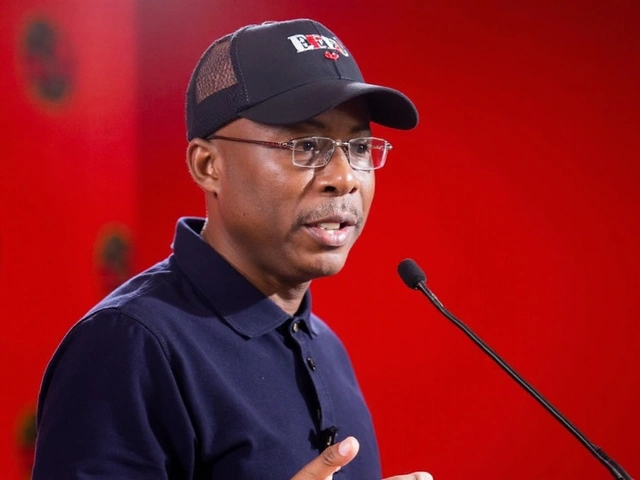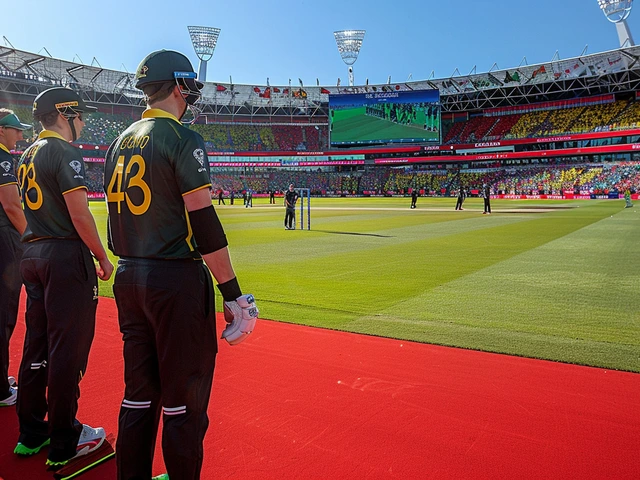ANC Faces Challenge in Coalition Formations Post-2024 Elections
In a significant development following the 2024 elections, ANC Secretary-General Fikile Mbalula addressed the media, providing a candid overview of the party's current position. At the National Results Operations Centre (NROC), amidst a backdrop of intense political activity, Mbalula's briefing was a pivotal moment, revealing the ANC’s strategies and challenges in the wake of a steep decline in electoral support.
The ANC, a dominant force in South African politics for decades, has encountered an unprecedented loss of support in the recent polls. This shift has compelled the party to explore coalition partnerships at both national and provincial levels. The election results have marked a turning point, signaling a potential reconfiguration of political alliances and power structures within the country. Mbalula’s briefing came as the Independent Electoral Commission (IEC) prepared to make its final declaration of the election results, adding an air of anticipation and urgency to the proceedings.
Seeking New Alliances
The concept of coalition politics is not entirely new to South Africa, but for the ANC, this represents a significant shift from their traditional position as a standalone governing party. The party now faces the intricate task of negotiating and forming alliances with various political entities, a process that is inherently complex and fraught with potential pitfalls.
During the briefing, Mbalula emphasized the ANC's commitment to pursuing cohesive and sustainable partnerships. He highlighted the importance of aligning with parties that share similar values and goals, to ensure stable governance. This approach is aimed at creating a unified front that can effectively address the multitude of challenges facing the nation, from economic issues to social inequalities.
Challenges and Implications
Mbalula also acknowledged the inherent difficulties in coalition negotiations. He noted that the process requires not only political acumen but also a willingness to compromise and find common ground. The fragmentation of political support has created a landscape where smaller parties hold significant leverage, thereby complicating the dynamics of coalition-building.
The potential for policy disagreements and ideological clashes within coalitions poses a substantial challenge. Mbalula stressed the need for open communication and negotiation to navigate these difficulties. He expressed optimism that through mutual respect and constructive dialogue, the ANC can forge effective partnerships that will benefit the citizens of South Africa.
Potential Partners
In the context of coalition negotiations, speculation abounds regarding potential partners for the ANC. Among the parties mentioned are the Economic Freedom Fighters (EFF) and the Democratic Alliance (DA), both of which present unique opportunities and challenges for coalition formation.
Aligning with the EFF could potentially bring about a more radical shift in policies, particularly in areas such as land reform and nationalization. On the other hand, a coalition with the DA might promise a more centrist approach, focusing on pragmatic solutions to economic and social issues. Each partnership comes with its own set of dynamics that the ANC will need to carefully consider.
Electoral Impact and Public Opinion
The election results have not only altered the political landscape but have also prompted a deeper reflection within the ANC regarding their governance strategies and public engagement. Mbalula’s briefing underscored the party’s recognition of the need to rebuild trust among voters and to address the factors that contributed to their declining support.
Public opinion plays a critical role in this process. The way the ANC navigates coalition negotiations and delivers on its promises will undoubtedly influence public perception and future electoral outcomes. Demonstrating effective governance and responsiveness to public needs will be crucial in regaining voter confidence.
Conclusion
As the Independent Electoral Commission finalizes the 2024 election results, the ANC stands at a crossroads. The briefing by Secretary-General Fikile Mbalula has laid bare the party's current challenges and their strategies moving forward. The pursuit of coalition partnerships marks a new chapter in South African politics, one that requires adaptability, negotiation, and a renewed focus on the needs of the people.
The coming weeks and months will reveal the outcomes of these coalition efforts and their impact on governance. For the ANC, this period is a test of their resilience and ability to adapt to an evolving political landscape. As the nation watches, the party's actions will shape the narrative of South Africa's future, with coalition politics playing a central role.







Write a comment